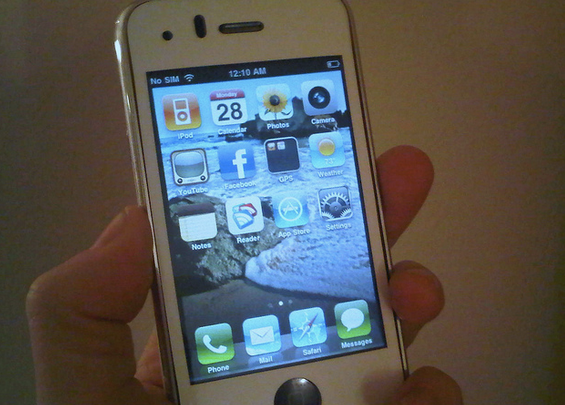Study Shows You Can’t Think Straight When Your iPhone Is In The Other Room

(Ninja M.)
A day without my smartphone is a day I couldn’t even imagine (scary, I know). And a new study by scientists at the University of Missouri says that not only is this separation anxiety very real, but that it can impact our cognitive abilities.
Newsweek reports that a study published in the Journal of Computer-Mediated Communication found that the ability to perform cognitive tasks were greatly affected by one’s proximity to their iPhone.
The study found that iPhone users tasked with solving a series of puzzles did worse on the cognitive tasks when separated from their devices, while they performed markedly better when their phones were at their side.
And if the participant’s phone rang while separated? Well, let’s just say it wasn’t a good thing; researchers found that led to elevated heart rates, increased blood pressure levels and anxiety for participants.
Russell Clayton, a doctoral candidate at the MU School of Journalism and the study’s lead author says in a statement that the findings suggest iPhones are capable of becoming an “extension of ourselves such that when separated, we experience a lessening of ‘self’ and a negative physiological state.”
Because no one would willingly separate from their trusty iPhone, researchers lied to participants in order to conduct the research by saying they were testing a new wireless blood pressure cuff.
Researchers then asked the subjects to complete a world search puzzle while they took readings of heart rates and blood pressure levels.
To test the impact of separation, the researchers told the participants they would need to take away their phones because the devices were causing “Bluetooth interference” with the cuff.
The phones were then placed in a nearby room while participants completed a second word search puzzle, with researchers again recording their heart rates and blood pressure levels.
During the completion of the second puzzle, researchers called the phones. Data recorded by the researchers found that while the phone was ringing participants were clearly displeased.
Each participant recorded significantly higher heart rates and blood pressure levels after the ringing stopped, and were significantly less adept at solving the word-search puzzles.
The participants also reported higher levels of anxiety and feeling higher levels of “unpleasantness” than when they were completing the puzzles with their phones on hand. However, the subjects weren’t asked to clarify what aspect of the situation contributed to their feelings of anxiety.
While it’s possible the subjects exaggerated their feelings about separation, the research does pose several new questions regarding our dependence on technological devices, the authors say.
“This finding alone calls for future research on whether other technological devices are capable of becoming incorporated into the extended self,” Clayton writes.
Our iPhones, Ourselves: Cell Phone Separation Anxiety is Real, Study Finds [Newsweek]
Want more consumer news? Visit our parent organization, Consumer Reports, for the latest on scams, recalls, and other consumer issues.

